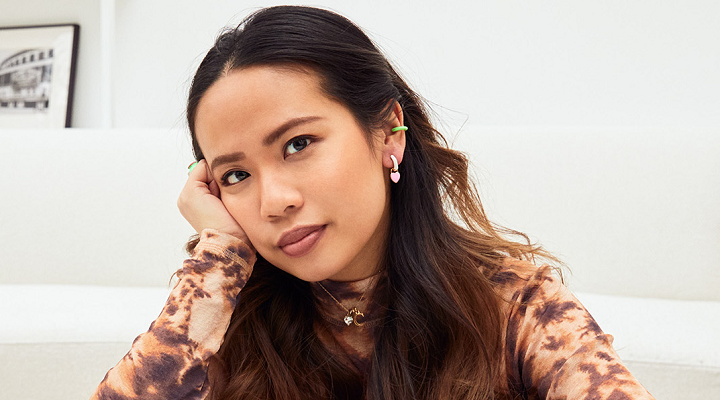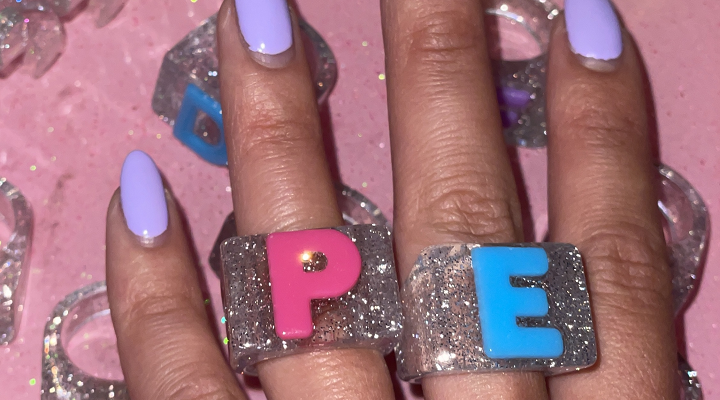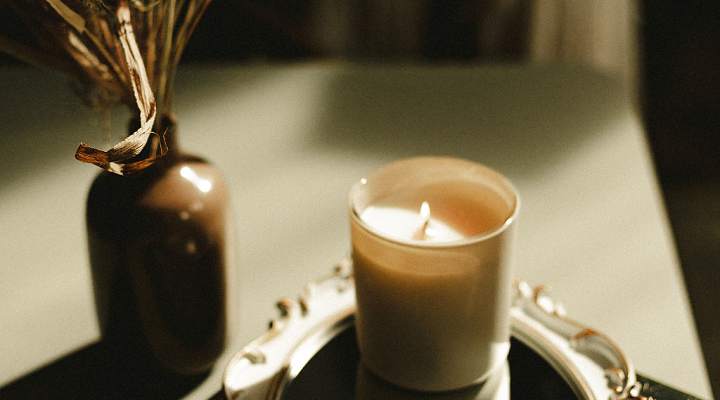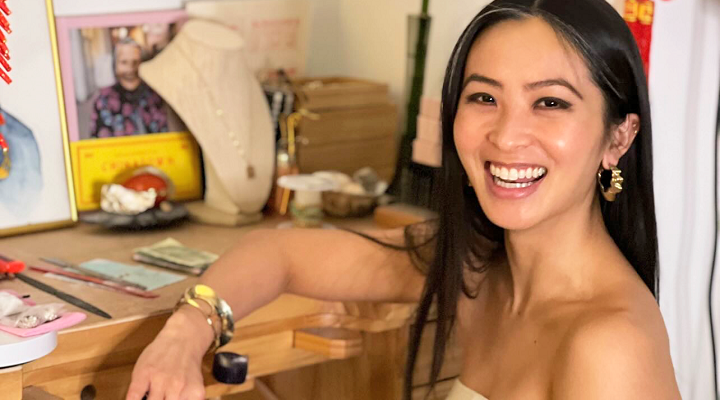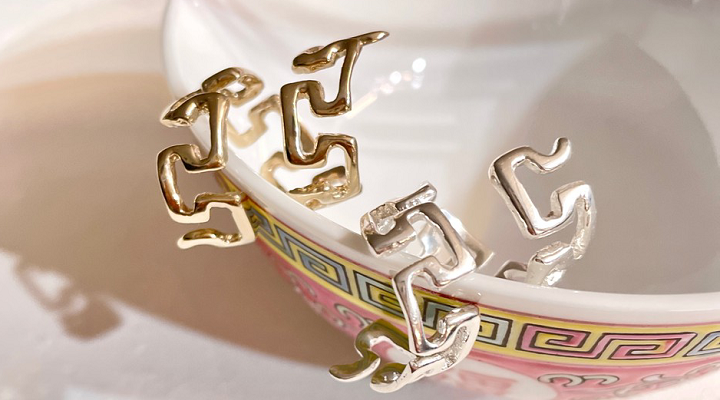Interest in supporting Asian American and Pacific Islander-owned businesses has grown considerably over the past few years, thanks in large part to organizations like Welcome to Chinatown and other efforts to boost AAPI pride in the wake of Covid. Here, Inside Retail takes a look at three up-and-coming brands and learns what the business journey has been like for their founders. Bonbonwhims Founder: Clare Ngai What it is: Brightly colored accessories reminiscent of play jewelry from the early 20
early 2000s.
The name references the French word for candy and a shortening of the word ‘whimsical’. And whimsical pieces of candy are the first things that come to mind when looking at the rings, necklaces, earrings and bracelets that jewelry brand Bonbonwhims has to offer.
What started as a passion project to raise funds for Black and Indigenous People of Color (BIPOC) organizations during the early, dark stages of the Covid-19 pandemic quickly turned into a lucrative business venture, to founder Clare Ngai’s surprise.
“I was a talent agent for six, seven years, and Covid happened,” Ngai said. “The whole world was on pause, and I just wanted to make some meaning out of my day-to-day, instead of just sitting there and waiting to see what’s going to happen tomorrow.”
As a person of color, she was also inspired by the Black Lives Matter and Stop Asian Hate movements, and wanted to contribute. “I’ve always loved making jewelry and arts and crafts, so it wasn’t meant to be a business at all when I first started it as a vehicle to raise money,” Ngai said.
Initially, she ran the business on Instagram, where consumers could directly message her to purchase a piece. She was still in shock that she was selling a few hundred dollars worth of jewelry a day, all of which was going to charity, when Kylie Jenner, one of the world’s most well-known influencers, wore her piece.
From there, Ngai quickly became swamped by orders and immediately set out to build an e-commerce website to meet consumer demand. It was during this time that it clicked that what was essentially a short-term project could be turned into a successful professional endeavor.
“[It] changed the whole trajectory of my business because my sales just skyrocketed. People really found out about me. That’s how it all turned into a business,” she said.
Today, Bonbonwhims jewelry has been worn by other female style icons, like Ariana Grande, Doja Cat, and Bella Hadid, and featured in several publications from The New York Times to Vogue magazine. The brand is now sold online by Nordstrom and Revolve, and in 2022, it collaborated with Netflix on a collection for the movie The School for Good and Evil.
In July, Bonbonwhims ran a successful pop-up shop on Elizabeth Street in Nolita, one of New York’s trendiest shopping areas. Due to popular demand, the pop-up was extended by a week. Ngai said, the pop-up was a trial to see if Bonbonwhims should open a brick-and-mortar location, and judging by the response from long-time and newly minted fans of the brand alike, it’s safe to say that there may soon be a new addition to the city’s list of must-see spots to shop.
Lanterne Candle Lab
Founder: Astisya Siswanto
What it is: An in-person candle-making workshop with a focus on East Asian scents, such as lychee and bubble tea.
While Chinatown is home to a variety of businesses, ranging from mom-and-pop shops to foodie-favorite restaurants and cafes, there hasn’t been a business quite like Lanterne Candle Lab before. As the name implies, Lanterne enables customers to create their own soy-coconut wax candles using a variety of vessel and scent options. One of the things that sets this candle shop apart from others is the specific range of scents available for customers to choose from. In addition to standard candle scents like tuberose and lemongrass, there are also bamboo, boba and lychee.
Astisya Siswanto opened the shop in August 2021, but the process wasn’t exactly straightforward. In addition to self-funding, together with her mother, Siswanto had trouble even finding a landlord who felt comfortable renting her a storefront.
“One of the challenges was actually convincing the building owner to let me run a business from there, because the concept is not a very common one,” Siswanto explained. “If it was a cafe or a restaurant, that would have been easier for them to envision. But since it was a new concept to them, they had a really hard time grasping, like, would I be able to pay them rent?”
Located on the corner of Mulberry Street and Bayard Street, Lanterne Candle Lab is only a few steps away from local hot spots, such as The Original Chinatown Ice Cream Factory, which – much like the candle lab – offers a variety of Asian-inspired options such as black sesame, lychee and durian, alongside more standard Western ones. Mei Lai Wah Bakery, known for the constant queue of customers lining up for roast pork buns, is also nearby.
“My intention was really to bring people back together,” said Siswanto, who opened the shop at a time when customers still had to wear masks and show their vaccination cards. “It was a time when there was a lot of everything worked out.”
While Siswanto lamented the challenges that New York City’s Chinatown faced during the pandemic, and the closure of many decades-old businesses, she is excited to be part of the next generation of entrepreneurs bringing life back to the neighborhood.
“The cool thing about candles is that once you’re done making them, it takes about an hour to set. So in that time, we actually encourage our guests to go out and support other local businesses in our area.”
In celebration of the store’s first anniversary, Lanterne Candle Lab hosted a pay-what-you-wish candle making event that drew over 300 people, with all proceeds going towards Welcome to Chinatown’s Longevity Fund.
Looking ahead, Siswanto said there are plans in the works to launch a second Lanterne Candle Lab on the West Coast and to expand the e-commerce site to stock ready-made candles for those who are unable to visit the store in person.
Sublima Jewelry
Founder: Kelly Bit
What it is: A sleek, sustainably made, Asian American-inspired jewelry brand.
From hoop earrings made to resemble xiaolongbao (dumplings) to rings that bring to mind spilled boba tea, Sublima Jewelry is a brand with a purpose beyond a love for accessorizing – though, there is that as well.
What started out as a creative outlet, away from her full-time work as a business writer and editor, Kelly Bit turned into a way to explore her personal identity through artistic creations.
While Bit was brought up on Long Island, her parents and partner grew up in and around Chinatown. Visiting local neighborhood spots with her partner, Bit was able to reconnect with the neighborhood in a way that she hadn’t been able to when she was younger. “I think my relationship with Manhattan’s Chinatown grew a lot as an adult, and I started feeling more at home and more like an integral part of the community because I was supporting the businesses,” Bit explained.
In the beginning stages of the pandemic, Bit began donating some of the proceeds from Sublima’s sales to non-profit and charitable organizations dedicated to supporting the Asian American community, social justice reform programs, and food banks helping those who were vulnerable during the pandemic. To date, she has donated almost $80,000 of profits to organizations including Welcome to Chinatown, the Asian American Federation, Asian Americans for Equality, Charles B. Wang Community Health Center, Equal Justice Initiative, Feeding America, and more.
While many of Sublima’s current pieces are inspired by Asian culture, that was not always the case. Bit explained that the initial items she produced in 2017 were more abstract designs, but as the brand grew, she became more inspired by her family’s cultural background.
For Bit, food became a way she could ingest her culture, both literally and metaphorically, in a way that felt approachable to her and many other first-generation Asian Americans.
“Food, I think, is always such a cultural connector, even between people of different ethnicities and cultures, but also when you’re of the ethnicity and culture,” she mused. “I grew up with certain dishes that my dad would make, or my grandma on my mom’s side would make. So I had certain ways to feel very connected. But then there was a lot to learn about different regional cuisines and things that I hadn’t learned when I was a child.
“When Chinatown was struggling during the pandemic, I felt really, really sad, for my own relationship to the neighborhood, but also because of my parents’ and grandparents’ relationships.”
In 2020, Bit launched the Water Banquet collection, which was inspired by different cultural delicacies. There are earrings inspired by tofu skin and bok choy, and rings inspired by the decorative edges of porcelain bowls and spoons that are common in many Chinese households.
“Those pieces meant something to me personally when I was thinking of creating them because I feel like jewelry can be so powerful, as a signifier that’s very outward – and it can be a signifier of pride,” Bit explained. “To beautify culture, especially food, I thought was kind of unexpected, but also personally meaningful. And I think a lot of people have liked that inspiration.”

